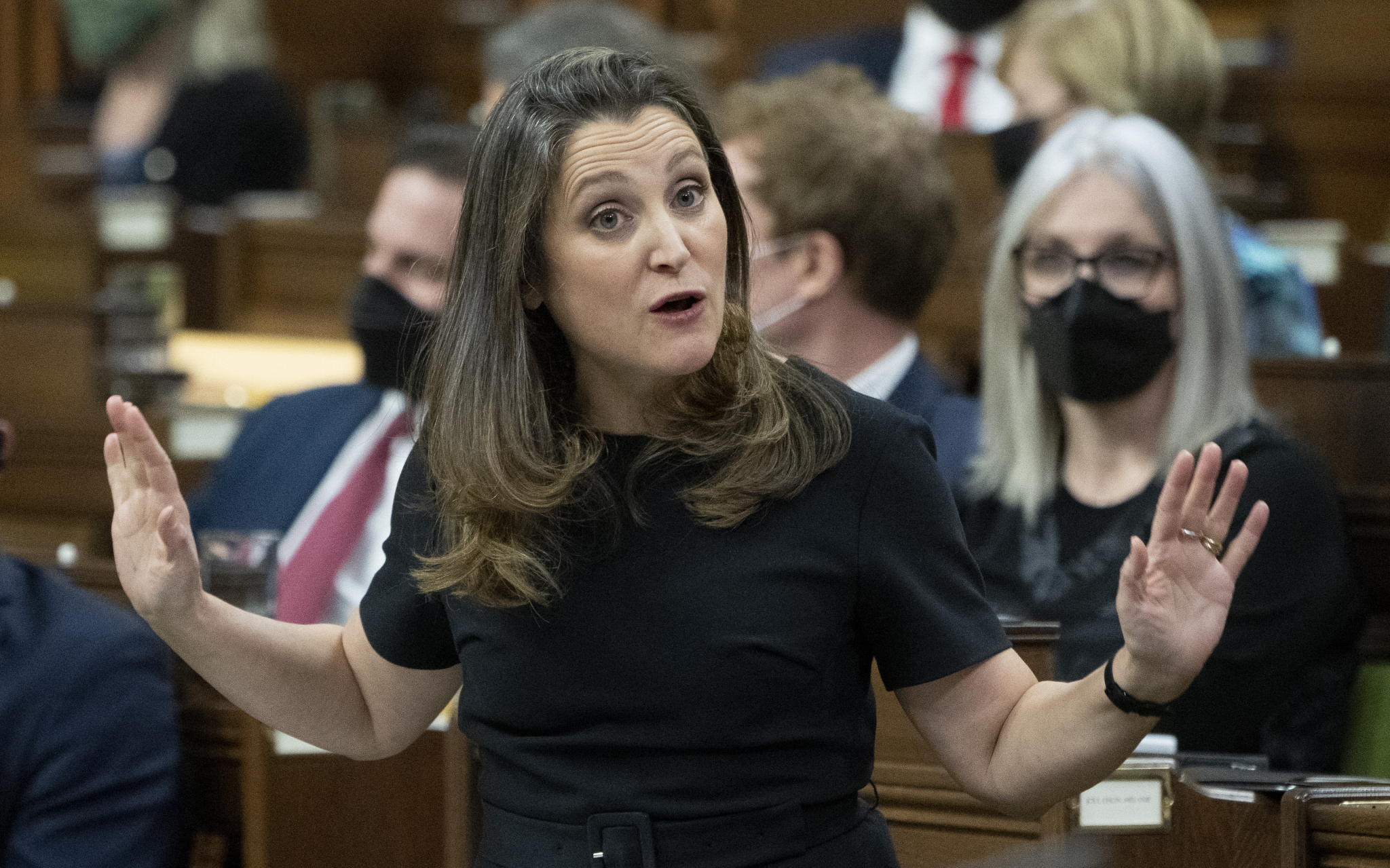For Justin Trudeau and his Liberal government, the hits just keep on coming with the Trans Mountain pipeline expansion. Last week, Trans Mountain announced the project will be an eye-watering $8.8 billion over its initial budget. And in a move that can’t help but raise eyebrows, CEO Ian Anderson will be retiring effective April 1.
If this is his idea of a practical joke, the Trudeau government surely isn’t laughing. It couldn’t have predicted the arrival of a years-long pandemic, or a huge flood that cut a destructive swathe through the pipeline’s right of way. But for those who believe Trudeau actually bought TMX intending to kill it, these cost revisions and changes to how it will be financed look like a smoking gun. For those who thought he never should have bought it in the first place, they’re vindication and validation. The truth, as tends to be the case, lies somewhere in between.
Despite a lot of pant-wetting from Alberta’s oil and gas enthusiasts, the announcement that the federal government won’t fund any more of the cost overruns on the project doesn’t mean they’re pulling the pin on it. As Reuters’s Nia Williams reported, “The government has engaged BMO Capital Markets and TD Securities to provide financial advice and [Finance Minister Chrystia] Freeland said the two advisers confirmed the project remains commercially viable and public financing for the project is a feasible option.”
Just because it can continue to build the project doesn’t automatically mean it should, though. As Greenpeace’s Keith Stewart said, "it's time to cut our losses on this white elephant." West Coast Environmental Law’s Eugene Kung used exactly the same language in a statement, concluding that “It’s time to recognize TMX for the tragic boondoggle it is, cut our losses and cancel this white elephant of a project.”
But is it? The operative question now isn’t whether he should have bought it in the first place but whether he should finish it at all. And the answer, at least from an economic perspective, is still a pretty clear yes. A combined $8.9 billion has already been spent on the project, and that will immediately be crystallized as a loss if it’s halted. Would the remaining $11.5 billion — heck, round it up to $15 billion — deliver a positive return on investment for taxpayers? It’s kind of hard to see how it wouldn’t if you zoom out and look at the bigger picture.
For one thing, canceling the project right now would deprive Indigenous communities along the route of billions of dollars in economic opportunities, to say nothing of the prospect of them buying the project outright at some point, as has been widely rumoured. It would also significantly raise the odds that Canadian oil would again start trading at a major discount compared to the benchmark West Texas Intermediate, as rising global demand and record Canadian supplies run up against a sudden lack of pipeline capacity.
The last time that happened, in 2018, it cost the NDP government in Alberta upwards of $4 billion in lost royalty revenues. According to a paper from University of Calgary economist Kent Fellows, if it had persisted for a full year it would have cost the Canadian economy more than $13 billion - including an $800 million hit to the federal treasury.
But so what, right? After all, it’s just money, and the last two years have proven that the government can find it if it really wants to. And if that’s all it was, I might be inclined to agree. Here’s the problem: killing TMX won’t mean that oil doesn’t get consumed, or the emissions from it won’t be released into the atmosphere. It just means they’ll get to market by different — and more expensive — modes of transportation. Even if those Canadian barrels that have been pledged to TMX could somehow be kept in the ground, that would simply push global prices even higher — and fatten the bank accounts of other oil producing regions, countries, and companies.
Killing TMX might absolve some Canadians of their guilt about the climate crisis, but it wouldn’t do anything to actually address or ease it. And we can do better than that.
The federal government should complete the project and redouble its commitment to using TMX as a bridge to a lower-carbon future. It should take all the incremental federal tax revenue the project will create, regardless of who owns the pipeline, and invest it in green technologies and emissions reduction programs. It should implement a cap on oil and gas emissions that puts real pressure on the industry to start bringing them down immediately, not in some distant future. And it should push the next government of Alberta — the one that could be led by Rachel Notley — to invest its increased royalty revenue in similar green projects and programs.
There’s an opportunity here to pursue meaningful economic reconciliation with Indigenous communities, fund environmental programs and priorities, and engage in some much-needed nation building at a time when the fabric of confederation is stretched precariously thin. It almost certainly wouldn’t make anyone on either side of this highly-emotional debate happy, of course. But good public policy decisions are about pursuing long-term benefits, not avoiding short-term political costs.
There are two related
There are two related subjects not yet addressed in this long comment thread.
First, BC is one of the largest customers for Alberta oil. That oil is shipped via the existing Trans Mountain pipe, which is probably well past its design lifespan. Should TMX be cancelled, we still have the serious issue of deep dependency on existing TM oil in BC and Washington state where a branch pipe leads. BC Hydro is in no position to substitute electricity straight across for the fossil energy consumed mainly in land transportation. Hydro will have to triple its generation capacity.
This is a big problem because it will take more than a decade for even a multi-billion dollar crash program to decarbonize and electrify the economy to lower demand for Alberta oil if planned as a 1:1 replacement of ICE cars with EVs. Something has to give, and that will have be in a program to reduce demand. Attempting an exceedingly costly increase in the supply of electricity without reducing demand is, in my view, infeasible. This should specifically involve the elimination of a proportionate chunk of the car population and a rethink of our accepted models of urbanism.
A very large build out of urban transit and intercity rail along with a mandated significant shift in zoning toward smart growth principles will be required, not dissimilar to the current shift in the building code toward a major stepped increase in the energy efficiency of new buildings. Provincial governments have control over their cities. A change in respective municipal zoning acts by provinces could be inspired by the major financial participation of the feds, for example to assume 60%-80% of the costs of building transit projects instead of the traditional 33%-40%.
The car-dependent single family home on a large lot is obsolete. This sprawling, car dependent suburban model from last century is already economically unsustainable over the long range (Strong Towns has lots of studies on that), so it’s only a matter of following principles of urban efficacy by modestly urbanizing the suburbs with an electrified network of decent passenger rail services and transit-oriented development. Human-scaled projects featuring ground-oriented family housing, low rises and continuous sidewalk retail will be very important town planning features that could also dramatically lower our per capita energy consumption under the Step Code and result in healthier residents due to a dominance of walking over driving.
Second, a national smart grid and stand alone clean electricity transmission corridors will certainly help spread out the costs of climate mitigation. BC Hydro can be a part of it, but doubling or tripling the electrical generation capacity in BC will require federal help, especially when fossilized provinces strenuously object to clean power corridors displacing big hunks of their sunset fossil fuel economies.
A failed lawsuit against TMX ironically cleared the path for future clean energy corridors by giving high-level legal support to crossing provincial boundaries with federal projects that are “in the national interest.” The Supreme Court of Canada also gave ultimate ownership of the contents of the proposed pipeline to the feds.
With that in mind, the TMX case could be used as the guiding legal precedent to cross provincial boundaries with a national smart grid consisting of high voltage transmission corridors for zero emission power over great distances. This could result in provinces sharing the cost of the mass electrification of the Canadian economy with the feds and among other provinces and territories, and to help offset imbalances in supply and demand between these jurisdictions during decades of operation.
Clean power corridors could also house industrial-scale banks of batteries for storage (cycled over hours or days) to be draw down at the most advantageous times, and provide opportunity and choice for adjacent private wind and solar farms to sell power to the national or provincial grids. With high enough levels of stable base load power distributed nation-wide, a new industrial order for operations like green steel and low emission cement could be clustered anywhere along the corridor, or connected to it remotely.
The hip bone is connected to the knee bone …
The other aspect of TMX that
The other aspect of TMX that has not been touched upon in this long series of welcome comments is the role of the federal government in justifying the project. Its environmental analysis at the time (2016) claimed that TMX would not add to GHG emissions because it was designed to transport the current level of oil production -- presumably in replacement of shipment by rail. It has always puzzled me why this deception has not been more widely exposed. Geoffrey Pounder has fully documented that the oil industry had no qualms stating the truth.
- ‹ previous
- 2 of 2






Comments